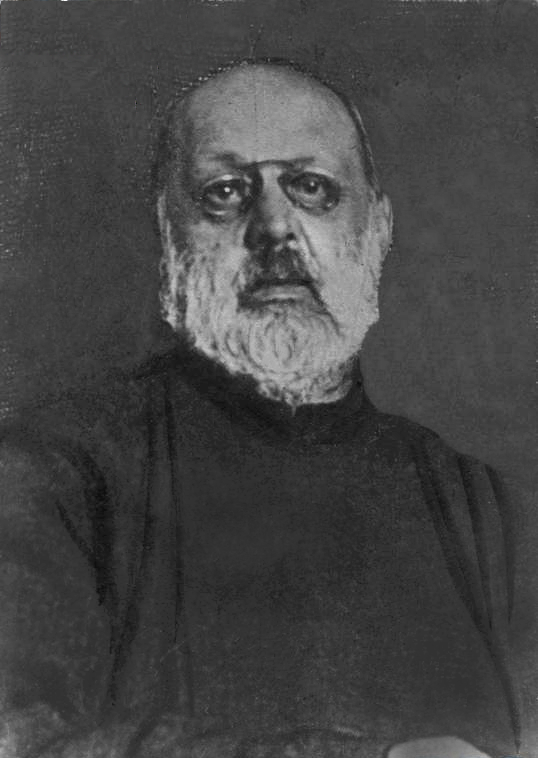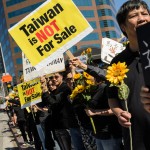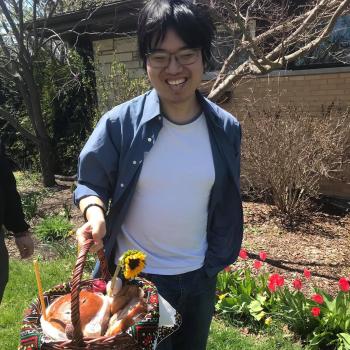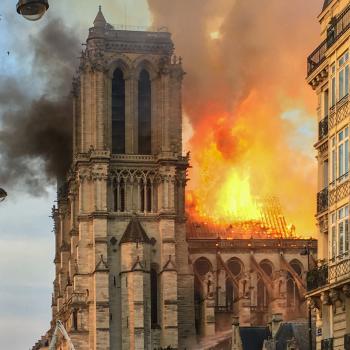
This is the fourth in a series of posts entitled Retracing My Footsteps in the City of Saints by Eugenia Geisel for Eastern Catholic Person on her experience of encountering the saints in Kraków as part of the ordinary supernatural during World Youth Day. There are three previous posts, one on the Black Madonna, a second on Blessed Jerzy Popiełuszko, and a third on Holy Faustyna and the Divine Mercy Devotion.
Eugenia is an undergraduate at the University of Washington in Seattle, majoring in Korean and minoring in Comparative Religion and Russian and Slavic Literatures; she took my course on Trans-Pacific Christianities, a class to which I recently had to issue a public retraction. Because Eugenia is a cradle Latin with Byzantine sympathies, I consider her for the purposes of this blog to be our Latin Catholic Person.
But there is another more compelling reason for Eugenia to post here. While Chris Altieri has criticized the participants at World Youth Day who are nearing age thirty for extended adulthood, Eugenia fits even his criterion for what ‘youth’ are. This is not to take a position on ‘youth’ – we can only be persons – but it is to say that this is an account of how one young Latin Catholic Person encountered the saints in the city of Kraków and cared enough about communion to tell an Eastern Catholic Person about it. The term ‘City of Saints’ is admittedly from George Weigel’s newest book, but it was also used widely during the festivities in Kraków, so any convergences with Weigel’s text is (unless noted) genuinely incidental.
It is important to note that this is a Latin Catholic reflection on an Eastern Catholic Person’s blog. Eugenia makes some interesting claims about Byzantine practice while describing Latin devotions. This means that in the future, I will have to reflect more deeply on these items as well.
It’s been over two months since World Youth Day, and yet I’m still reflecting on it. In the words of Justin himself, “World Youth Day is not an ambulance to be chased.”
In fact I had been beating myself up about being behind in these posts [NOTE FROM JUSTIN: I delayed them even more because I had some technical difficulties with Patheos, which are now resolved], but then I realized that there was a lesson even in that. The whole point of an experience such as World Youth Day is that you carry it with you and that your reflection on it seeps its way into affecting your everyday life. It’s so, so easy to get caught up and trapped in the banality and even dramas of our daily lives, whether that results in procrastinating or writer’s block, or simply just forgetting what is important or lessons one has learned. That’s part of why I think it’s so important to have some kind of experience that reminds us of the greater story. I hope I keep reflecting and growing from this year’s WYD for the rest of my life.
As mentioned in my previous posts, I was at WYD 2016 as part of the choir for the daily masses at the Mercy Centre (the English language catechesis site), and there we were blessed to be in the presence of five great Polish saints. Most of these saints I have a strong personal connection to, (in fact my brothers’ are named for two of them), but there was one that upon my arrival in Kraków I was unfamiliar with. This was St. Albert Chmielowski, often affectionately called Br. Albert or “Our God’s Brother” (which is also the title of a play about his life written by none other than Karol Wojtyła, who would also later canonize him as Holy Pope John Paul II).
I knew little of Br. Albert until I was talking with some of the Sisters of Life who sang with us in our in choir, and they mentioned that they were staying in the convent of the Albertine Sister’s, and so they told me a bit more about his life and the order he started. Albert was born into a wealthy family in a part of Poland that was under Czarist rule at the time. Subsequently, as a young adult he became involved in Polish nationalist movements (to the point of losing a leg and having to flee Poland!). Eventually he was able to come back to Poland and move to Kraków, where he had a successful career as a painter and well-known artist. During this time he became more aware and compassionate about the plight of the poor and homeless in his city. Ultimately, he gave up his career as an artist and would go on to profess vows as a first as a third order Franciscan and later founding the Albertine Brothers and Sisters, whose mission to this day involves serving the poor and homeless with food, shelter, and compassion.
Now that I knew more about him, it was obvious that he was a pretty awesome figure and saint. Despite this, I think there is something to the difference between knowing about a saint and having some experiential or spiritual connection with them. It made complete sense in my head that I should identify with Br. Albert, as he was an artist and compassionate for the urban homeless, but for some reason he just didn’t quite reach my heart yet – which I think is okay, because like with people in our earthly lives, our relationships with members of the communion of saints is something I have come to think can not or should not be forced.
Saturday to Sunday was the culmination of WYD with the huge outdoor vigil with all the pilgrims. Everyone received packs of shelf stable food meant to last us the campout and weekend, and they were filled quite generously with all kinds of food, snacks, and drinks. The following Monday was the day we needed to check out of the local school we were staying at, and the last day some of my new and dear friends from our choir were in Poland. Packing up all of our stuff, we realized we still had a good amount of the food leftover from the weekend. We packed it up back in the little packs they came in along with some other necessities such as rain ponchos and blankets, because we wanted to find someone who needed it more than we did.
Three of my friends and I spent the day together running around the city with all of our luggage in tow, and although we were confident that God would send us to whoever needed the food we were carrying around we couldn’t seem to find anyone at first. Nevertheless, just like the rest of the week it was clear the Holy Spirit was working through every moment. We inadvertently made it to daily mass at St. Mary’s Basilica, ran into our choir director and his family who gave us the real local insight into a spot for what turned out to be hands down the best food experience of our trip, if not our lives. A wonderful day was topped of with some amazing lody (Polish ice cream meets gelato) before having to head back to the train station, but we were still schlepping around the food bags without finding someone who needed them.
As we made our way across town to the train station, for some reason we just happened to cut through the park. It was while we were going through the park that we noticed a woman. I felt for a second that maybe she was who we were meant to find, but I hesitated because she was talking to someone in Polish so I couldn’t really understand the situation nor did I want to interrupt, but one of my friends must have been thinking the same thing I was, though being the more confident of us actually said something about it. “Hold on a second,” he said, and we backtracked a couple steps to where the woman was. My friend was the first approach her, quickly followed by the rest of us. “Do you need food?” he asked her, and her face lit up as she replied yes. Then my friend introduced himself and asked her what her name was, and she also introduced the two men next to her, who I think may have been her brother and son. Her name was Klaudia, and being the second of us to come up to her I said “I’m Eugenia”, and the next thing I knew she embraced in a hug overwhelmed with gratitude and gave me a kiss on the cheek. We talked with her, we gave them the food, and then we asked if we could pray with them. They were more than happy to pray with us, and so we stood in a circle in the middle of a park in the middle of Kraków and prayed. In all honesty it was a truly beautiful moment.
After that we had to say our goodbyes and rush off to the train station. I don’t know Klaudia’s story, I don’t know what her situation is, all I know is that she and her family needed something to eat, and even more than that they needed what we all need: someone to care.
Walking to the train station, the four of us discussed what had just happened. Some of us admitted to asking for the intercession of Holy John Paul II to find who needed the food. It wasn’t until later and in retrospect that a thought occurred to me. Br. Albert was one of JPII’s favorite saints and a source of personal and spiritual inspiration for him, so perhaps he handed over the intercession to him. After all, these were the same people that Br. Albert devoted his life to: the people of Kraków who were in need. When I realized that, it was like something clicked and I think I understood Br. Albert a bit more. Okay, Brother. We can be friends now, I thought, because as I said before, I think our relationships with the saints can be not all that different from those of our earthly friends. Like he preached, I try to be aware of the suffering of those around me, but of course I usually fail everyday. The good news is this is a reminder for us all. Obviously a preferential option for the poor and vulnerable is not something unique to the Latin tradition; in fact, there may be a reading of Holy Basil the Great that finds that the modern hospital can be traced to the early Byzantine Church. Yes, it is important to provide food and shelter or whatever else for those who need it, but I think Br. Albert’s life is a testament to the fact that it is even more important to simply show you care for the person and in doing so recognize their human dignity. Love can take someone much, much, farther than their next meal.











